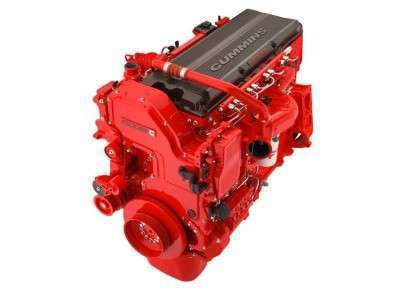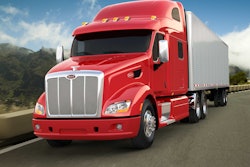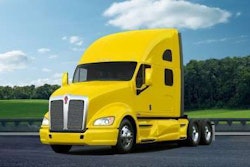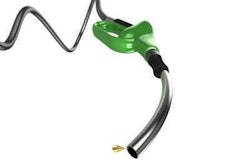 ISX 15
ISX 15Cummins’ 2010-compliant heavy-duty diesel engines are making good on the company’s promise to deliver at least 5 percent better fuel economy than their 2007-compliant emissions technology, the company said March 23.
“A half-dozen to a dozen fleet owners are reporting double-digit fuel economy increases,” said Jim Kelly, Cummins vice president and the retiring president of the Cummins engine business.
Over the next decade, the key competitive question for engine suppliers will be who can deliver the best fuel economy, says Rich Freeland, who is succeeding Kelly.
“We’re going to come out aggressively in improving fuel economy,” Freeland said. Fuel economy was central to Cummins’ decision ultimately to choose selective catalytic reduction over more aggressive exhaust gas recirculation even though the emissions credits it has amassed over the years would have allowed them to stay the course with existing technology for some time.
“Sticking with 2007 technology would have had a very negative impact on our customers,” Freeland said. In addition, there’s a learning curve with the new technology, he added. “Starting out two years behind isn’t a good place to be.” Over the next few years, Cummins plans to use the flexibility afforded by its emissions credits to optimize fuel economy for its customers.
After limited production in 2009 of engines designed to meet Environmental Protection Agency requirements for 2010, Cummins began full production of EPA 2010 engines in January and has produced more than 2,500 EPA-certified 2010 engines at manufacturing facilities in Jamestown, N.Y., and Rocky Mount, N.C.
Full production followed extensive testing for performance and reliability, Cummins says. The company equipped more than 200 vehicles, including internal test vehicles and customer field test vehicles, with a proprietary datalogger that enables Cummins to log nearly 240 different variables while the vehicle is in operation. The company also has accumulated more than 8 million miles of real-world experience by having the products operated by more than 80 customers in normal daily operations.
“The data that we are collecting from our internal product testing, coupled with the feedback from our customers, is validating that our 2010 engines are delivering on our promises, and there are cases where the results are even better,” said Jeff Jones, vice president-sales and market communications.
In other news, Cummins:
- Debuted the Cummins QuickCheck 5200 handheld device that allows users to adjust engine features and parameters and read trip information. The QuickCheck 5200 features a new color screen for improved readability in all lighting conditions and the ability to directly adjust individual parameter settings in the electronic control module.
- Announced availability of a new collection of driver education materials for customers of Cummins EPA 2010 on-highway engines, including a DVD, CD and Tips Card to help customers learn about features, the Cummins Aftertreatment System and operating suggestions.
In addition, Cummins Filtration announced that it and Valvoline had formed an alliance to package, market and distribute diesel exhaust fluid in North America. Fleetguard Valvoline Air Shield DEF will be offered through the Cummins and Valvoline distribution channels in the United States and Canada, effective April 2010.
Cummins Filtration also announced the release of environmentally friendly Fleetguard ES Compleat organic acid technology coolant in a nitrite-, amine- and phosphate-free formulation.










